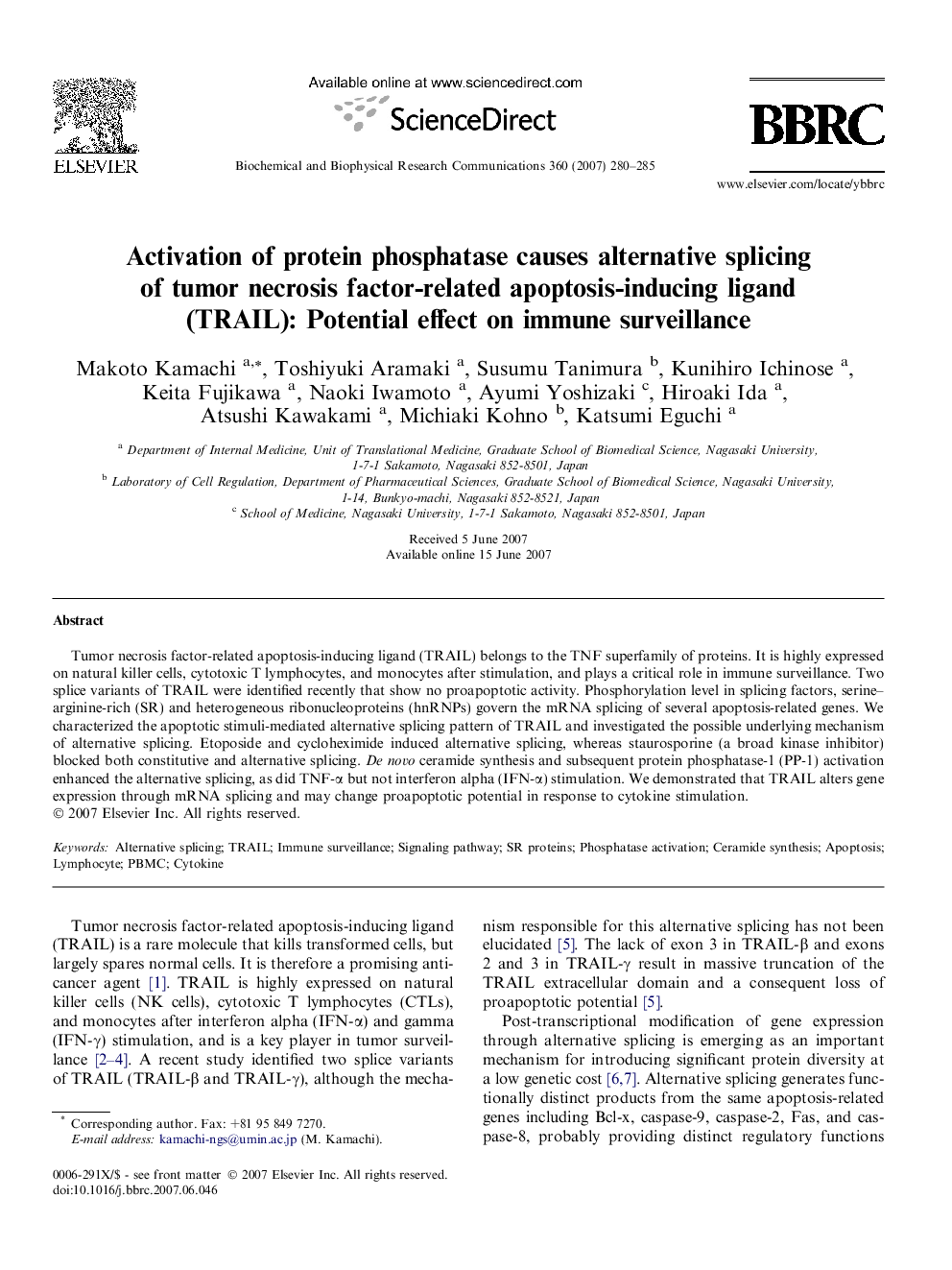| کد مقاله | کد نشریه | سال انتشار | مقاله انگلیسی | نسخه تمام متن |
|---|---|---|---|---|
| 1937406 | 1050715 | 2007 | 6 صفحه PDF | دانلود رایگان |

Tumor necrosis factor-related apoptosis-inducing ligand (TRAIL) belongs to the TNF superfamily of proteins. It is highly expressed on natural killer cells, cytotoxic T lymphocytes, and monocytes after stimulation, and plays a critical role in immune surveillance. Two splice variants of TRAIL were identified recently that show no proapoptotic activity. Phosphorylation level in splicing factors, serine–arginine-rich (SR) and heterogeneous ribonucleoproteins (hnRNPs) govern the mRNA splicing of several apoptosis-related genes. We characterized the apoptotic stimuli-mediated alternative splicing pattern of TRAIL and investigated the possible underlying mechanism of alternative splicing. Etoposide and cycloheximide induced alternative splicing, whereas staurosporine (a broad kinase inhibitor) blocked both constitutive and alternative splicing. De novo ceramide synthesis and subsequent protein phosphatase-1 (PP-1) activation enhanced the alternative splicing, as did TNF-α but not interferon alpha (IFN-α) stimulation. We demonstrated that TRAIL alters gene expression through mRNA splicing and may change proapoptotic potential in response to cytokine stimulation.
Journal: Biochemical and Biophysical Research Communications - Volume 360, Issue 1, 17 August 2007, Pages 280–285